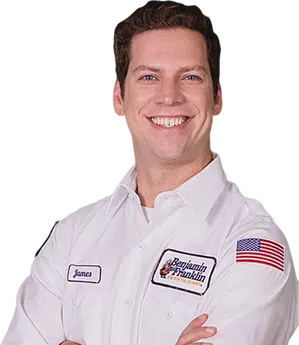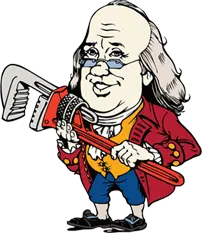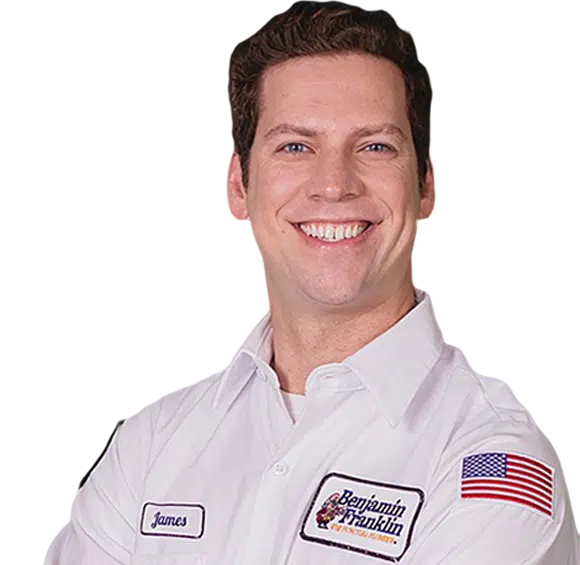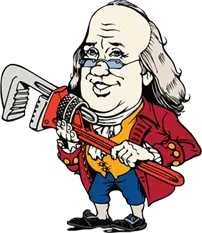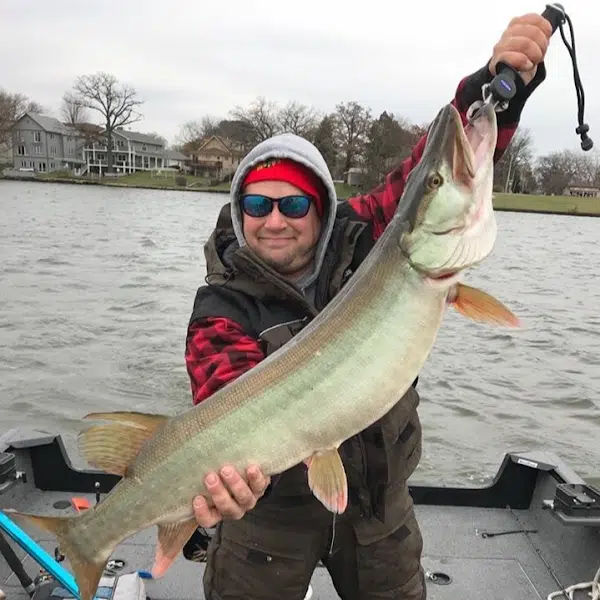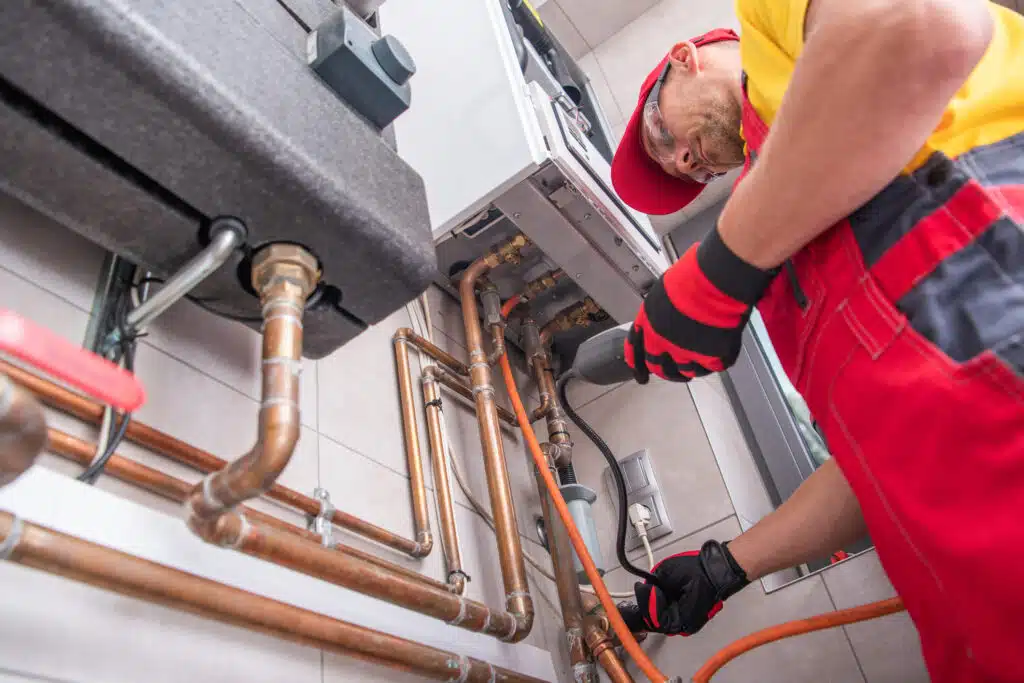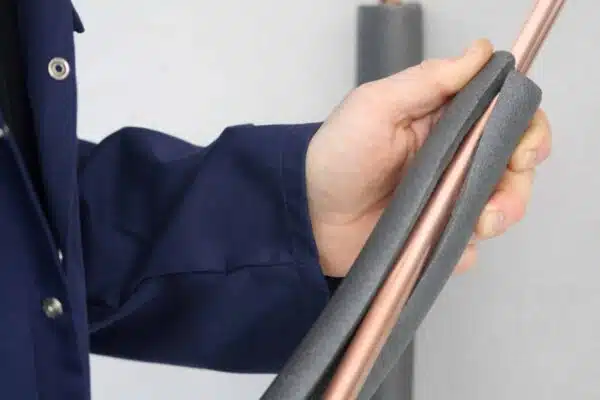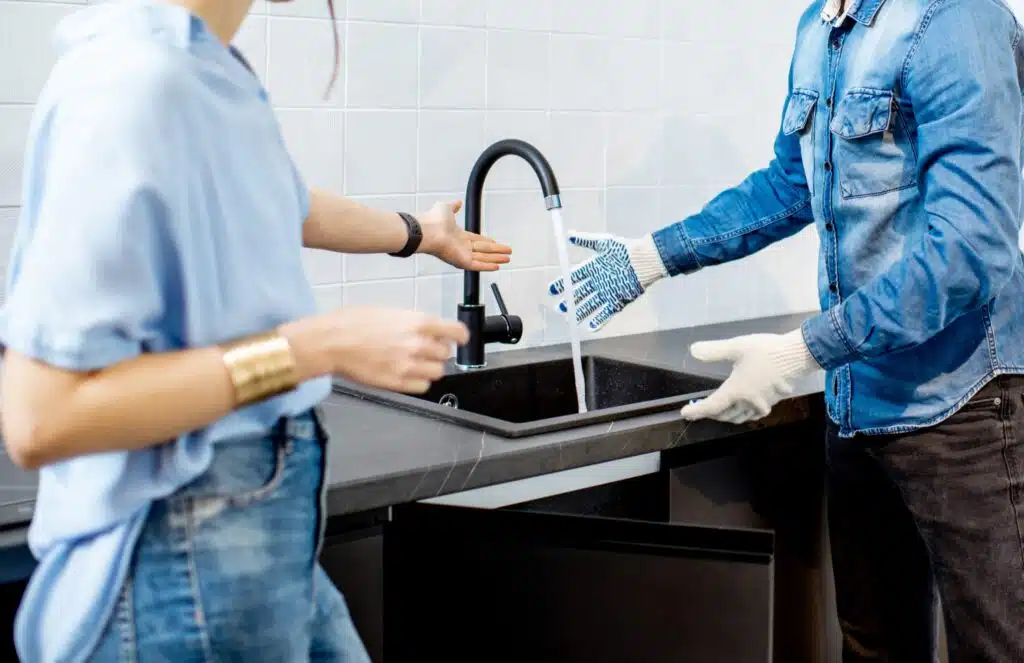Winter is here, and that means it’s time to prioritize plumbing maintenance and give your plumbing a little extra love.
Nobody wants to deal with frozen pipes or surprise plumbing problems when it’s freezing outside, right? Whether you’re in Lancaster, PA, Lebanon, PA, or Reading, PA, these tips will help keep your plumbing system running smoothly all season long.
Taking care of your plumbing in December is super important. With colder weather and the holidays adding extra strain, a little maintenance now can save you from big headaches later.
Why December Plumbing Maintenance Is Important
Protect Against Cold Weather
Cold weather can wreak havoc on your plumbing, particularly if your pipes are not properly insulated. Freezing temperatures can cause water in your pipes to expand, leading to cracks or even full-blown bursts that can flood your home.
Taking simple steps, like wrapping exposed pipes with foam insulation, can save you from dealing with costly repairs. Pay special attention to pipes in basements, attics, and outdoor areas, as these are the most vulnerable. Proper protection ensures your plumbing system stays intact, even on the coldest nights.
Prepare for Increased Usage
Holiday gatherings mean more people using your plumbing, from extra showers to constant dishwashing and bathroom visits. This increased activity puts stress on your system, especially if there are existing weak points like slow drains or minor leaks.
Preparing for this surge in usage by checking and maintaining your plumbing can help prevent issues when you have guests. Simple tasks like cleaning drains or testing your water heater can make a big difference. A prepared plumbing system ensures you can focus on enjoying the holidays rather than fixing unexpected problems.
Avoid Emergency Repairs
Plumbing emergencies often strike at the worst times, like during a holiday dinner or when you’re hosting guests. Burst pipes, clogged drains, or broken water heaters are not only inconvenient but also expensive to fix during off-hours or in winter.
Proactive maintenance in December can help you identify and address potential problems before they become emergencies. By staying ahead of the game, you reduce the risk of needing a last-minute call to a plumber. Preventative care saves both your wallet and your peace of mind.
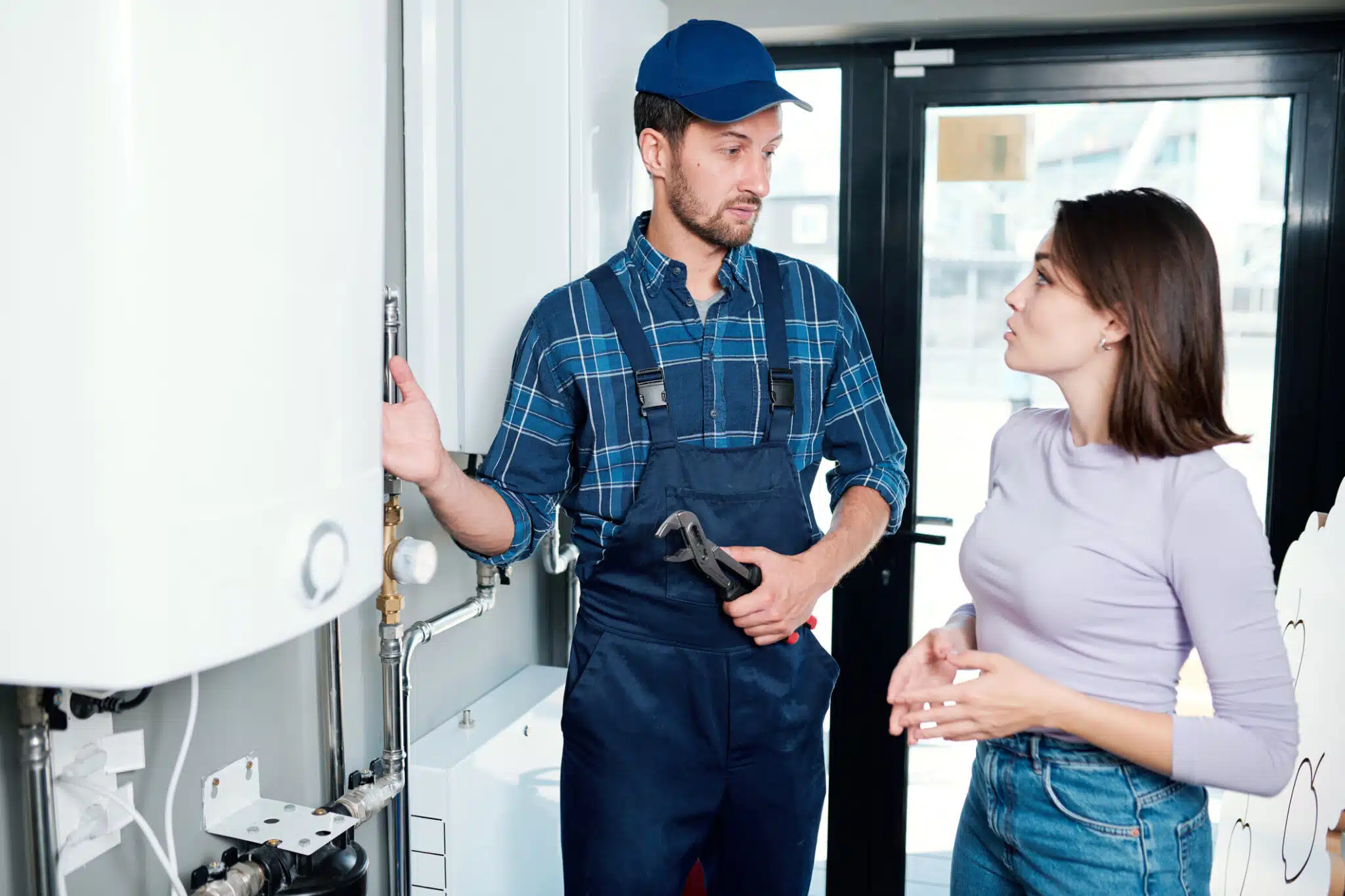
Essential December Plumbing Maintenance Tips
1. Insulate Pipes
Wrapping exposed pipes with insulation is one of the most effective ways to prevent freezing during the winter months. Pipes in unheated areas like basements, attics, and garages are particularly vulnerable to extreme temperatures and need extra attention.
Foam pipe insulation is both affordable and easy to install, creating a protective barrier that keeps pipes warm and functioning properly.
For pipes in extremely cold areas, adding heat tape or heated pipe wraps can provide an additional layer of protection. Insulating pipes is a key part of plumbing maintenance, ensuring your plumbing stays safe and efficient throughout the season.
2. Check for Leaks
Even small leaks can become big issues when the temperature drops, as water trapped in pipes can freeze and expand. Inspect faucets, pipes, and areas under sinks for drips, water stains, or corrosion that could signal a problem.
Addressing leaks promptly is a crucial part of plumbing maintenance, as it prevents further damage and costly repairs during the colder months.
Fixing leaks early ensures your system can handle the extra strain of winter and holiday use. Regularly inspecting for leaks protects your plumbing from freezing, bursting, or other cold-weather risks.
3. Clean Your Drains
Clogged drains are a common problem during the holidays when cooking and guest activity increases water usage. Take the time to clean out drains in sinks, showers, and tubs to ensure smooth water flow and prevent potential blockages.
Using an enzyme-based cleaner is a safe and natural way to remove buildup without harming your pipes, which is an essential step in plumbing maintenance.
For stubborn clogs, it’s wise to consult a professional plumber to avoid damaging your plumbing system. Keeping drains clean and clear reduces stress on your pipes, making your entire plumbing system more efficient during the busy holiday season.
4. Test Water Heaters
Your water heater works harder in December, so making sure it’s in good condition is vital for winter plumbing maintenance. Test the water heater temperature and ensure it’s set to 120°F for safety and efficiency while still meeting your household’s needs.
Inspect the tank for signs of rust or leaks, and flush out any sediment buildup to maintain performance. If your water heater hasn’t been serviced recently, scheduling a professional inspection can help identify and address any potential problems.
A well-maintained water heater ensures you have a steady supply of hot water for your family and holiday guests.
5. Disconnect Outdoor Hoses
Leaving hoses attached to outdoor faucets can cause water to freeze inside, leading to pipe bursts and costly damage. Disconnect and drain all garden hoses before storing them away for the winter to protect your plumbing system.
For added protection, install frost-free spigots or use faucet covers to shield outdoor faucets from freezing temperatures.
These simple steps are a fundamental part of plumbing maintenance, helping to safeguard your pipes from extreme cold. Proper outdoor faucet care prevents plumbing issues and ensures your system remains winter-ready.
Preparing for Holiday Guests
Increase Hot Water Supply
The holiday season often means extra family and friends staying over, which can put a strain on your hot water supply. Adjust your water heater’s temperature to handle the increased demand, but make sure it doesn’t exceed 120°F to prevent scalding accidents.
If you’re expecting heavy usage, staggering showers, dishwashing, and laundry can help ensure a steady supply of hot water throughout the day.
For older water heaters, a quick flush to remove sediment buildup can improve efficiency and performance. Proper hot water preparation is an essential part of plumbing maintenance to ensure your guests stay comfortable and happy.
Check Toilet Functionality
Holiday gatherings mean your toilets will see more use than usual, so ensuring they are functioning properly is critical. Check for signs of running water, weak flushing, or leaks, and make any necessary repairs ahead of time.
Replacing a worn-out flapper or adjusting the tank’s water level can fix most minor toilet problems quickly and affordably. It’s also a good idea to place a plunger in each bathroom for emergencies, giving your guests peace of mind.
Taking these simple plumbing maintenance steps helps avoid embarrassing or inconvenient toilet issues when hosting loved ones.
Provide a Waste Bin in the Bathrooms
One of the easiest ways to prevent toilet clogs during the holidays is by providing a waste bin in every bathroom. This encourages guests to properly dispose of non-flushable items like tissues, wipes, and sanitary products rather than flushing them.
A small, discreet note reminding guests to use the bin can make a big difference without feeling awkward. Regularly empty the bins to keep bathrooms tidy and appealing for everyone. This small but essential plumbing maintenance step keeps your toilets clog-free and ensures a smooth experience for your guests.
Protecting Your Plumbing During Holiday Cooking
Avoid Pouring Grease Down the Drain
Cooking for family and friends often involves lots of grease, oil, and fats, but these can wreak havoc on your plumbing system. Pouring grease down the drain might seem harmless, but as it cools, it hardens and clogs your pipes, creating major issues.
Instead, collect grease in a sealable container, let it cool, and throw it in the trash. Keeping grease out of your drains is a simple but vital part of effective plumbing maintenance. This small step can save you from dealing with expensive and preventable blockages during the holidays.
Use a Sink Strainer
Food scraps are another common cause of clogged drains, especially when your garbage disposal is working overtime. A sink strainer catches food particles before they enter your plumbing system, helping to maintain proper water flow.
For a busy holiday kitchen, a strainer is an inexpensive but powerful tool in your plumbing maintenance routine. Clean it regularly to prevent buildup and ensure it works efficiently. By keeping food out of your pipes, you’re protecting your plumbing from avoidable stress.
Run the Garbage Disposal Regularly
Your garbage disposal will likely see more action during the holiday season, so keeping it in good shape is essential for smooth plumbing maintenance. Always run cold water while using the disposal to help solidify grease and carry food particles through the system.
Avoid overloading it with fibrous or starchy items like potato peels or celery, which can cause jams. Running the disposal daily ensures it stays clear and ready to handle the extra load. Proper care of your garbage disposal is a key part of holiday plumbing maintenance.
Long-Term Winter Plumbing Maintenance Tips
Seal Drafts Around Pipes
Cold drafts can freeze pipes in areas like basements, garages, or crawl spaces, leading to significant damage. Use caulk or expanding foam to seal gaps and cracks around pipes that enter or exit your home.
This extra layer of insulation prevents cold air from reaching your plumbing and helps maintain a stable temperature.
Sealing drafts is a simple but highly effective plumbing maintenance step that protects against freezing and bursting pipes. By keeping your home sealed, you reduce energy waste and ensure your plumbing stays safe all winter long.
Install a Sump Pump Alarm
If you have a basement, installing a sump pump alarm is a smart move for winter plumbing maintenance. This device alerts you when water levels are rising, giving you time to act before flooding occurs.
With unpredictable weather in places like Lancaster, PA, Lebanon, PA, or Reading, PA, winter storms can overwhelm sump pumps if they’re not functioning properly.
Regularly test your sump pump and consider upgrading to a battery backup system for added peace of mind. A sump pump alarm adds a crucial layer of protection to your home’s plumbing system.
Consider a Professional Inspection
While DIY plumbing maintenance can go a long way, scheduling a professional inspection ensures nothing is overlooked. A plumber can identify hidden problems like slow leaks, partial blockages, or aging fixtures that may fail during winter.
Inspections are especially helpful in older homes, where plumbing systems are more susceptible to wear and tear. Investing in a professional checkup now can save you from costly emergency repairs later. Comprehensive plumbing maintenance by an expert gives you confidence that your system is ready for the season.
Signs You Need Professional Plumbing Help
Persistent Low Water Pressure
If you notice weak water flow in your sinks or showers, it could signal a deeper plumbing issue that requires attention. Low water pressure often points to problems such as pipe leaks, sediment buildup, or even frozen pipes during colder months.
While minor blockages or pressure drops might be manageable with basic plumbing maintenance, persistent issues usually demand professional expertise.
Ignoring low water pressure can lead to worsening system failures, higher water bills, or costly repairs down the line. A professional plumber can quickly diagnose the root cause and restore proper water flow to your system, ensuring your home functions smoothly.
Slow-draining sinks or Tubs
A sink or tub that drains slowly may seem like a minor annoyance, but it often indicates a deeper clog in your plumbing system. Over-the-counter solutions might temporarily alleviate the problem, but they rarely address the underlying cause of the blockage.
Left unchecked, these clogs can worsen, potentially causing pipe damage, water backups, or unpleasant odors in your home. Regular plumbing maintenance can help prevent these issues, but persistent slow drains are a clear sign you need a professional’s help.
A skilled plumber has the tools and expertise to thoroughly clean your pipes and keep your plumbing system running efficiently.
Frequent Toilet Backups
Toilets that repeatedly clog or back up are more than just an inconvenience; they can indicate serious issues with your main sewer line. This problem is especially common during winter, as increased usage during the holidays or invading tree roots in underground pipes strain your system.
While routine plumbing maintenance can help resolve minor issues, recurring backups are a sign that professional intervention is necessary.
A plumber can perform a detailed inspection to pinpoint the cause, whether it’s a clog, damaged pipe, or sewer line problem. Fixing these issues early can save you from messy situations and costly emergency repairs.
Unusual Noises or Odors
Strange gurgling sounds in your pipes or foul odors coming from your drains are often warning signs of plumbing trouble. These symptoms could indicate blockages, venting problems, or even damage to your sewer line.
Attempting to resolve these issues without the proper tools or knowledge can escalate the problem and cause further damage. Listening to unusual noises and addressing unpleasant smells should be a part of your winter plumbing maintenance routine.
A professional plumber can identify and resolve the issue efficiently, ensuring your home remains safe, odor-free, and comfortable throughout the season.
Keep Your Plumbing Winter-Ready with Expert Help!
Don’t let plumbing problems ruin your winter in Lancaster, Lebanon, or Reading, PA. At Benjamin Franklin Plumbing of Lancaster, we specialize in reliable plumbing maintenance to keep your home safe and stress-free all season long.
From frozen pipes to water heater checks, our team has you covered. Call us today to schedule your winter plumbing service and ensure your system is ready for whatever the season brings!

Frequently Asked Questions (FAQ)
1. How can I prevent pipes from freezing in extreme cold?
You can prevent freezing by insulating exposed pipes, sealing drafts around pipe entry points, and maintaining indoor temperatures above 55°F. Letting faucets drip slightly during freezing weather also helps reduce pressure and maintain water flow. These steps are an essential part of winter plumbing maintenance to avoid costly repairs.
2. How often should I flush my water heater?
It’s recommended to flush your water heater at least once a year to remove sediment buildup and maintain efficiency. This is especially crucial before winter, as increased hot water demand puts extra strain on the system. Regular flushing extends the life of your water heater and keeps it performing at its best.
3. What’s the best way to dispose of holiday cooking grease?
Never pour grease down your sink or drain because it can cool, harden, and clog your pipes. Instead, collect grease in a sealable container, let it cool and solidify, then dispose of it in the trash. This small step is key to avoiding blockages and unnecessary plumbing repairs.
4. Do outdoor faucets need attention in winter?
Absolutely! Disconnect any hoses, drain the faucets, and use covers to protect them from freezing temperatures. For additional protection, consider upgrading to frost-free spigots to safeguard your outdoor plumbing. Taking care of outdoor faucets is an important step in winter plumbing maintenance that prevents costly damage.
5. When should I call a plumber instead of fixing issues myself?
If you’re dealing with persistent low water pressure, frequent backups, or unusual noises, it’s best to call a professional. Regular plumbing maintenance can address minor issues, but a plumber’s expertise is essential for diagnosing and fixing complex problems. Ignoring these signs can lead to bigger and more expensive repairs.

